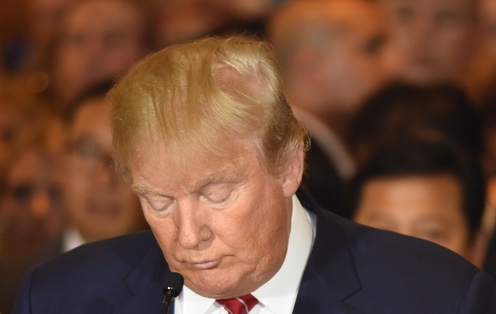The laws of politics will take Donald Trump down in the end

Now that Special Counsel Robert Mueller is firmly closing in on Donald Trump, it’s led to renewed questions about precisely how Mueller will proceed with his endgame. No matter how thoroughly Mueller can prove Trump’s guilt, he can’t simply wave a magic wand and cause a trap door to open under Trump’s desk in the White House. There are specific methods for ousting a sitting president, and the most relevant one is being overlooked.
Some in the mainstream media are now trying to paint a scenario in which Robert Mueller simply won’t be able to oust Donald Trump no matter what. They’re citing the fact that only Congress can make impeachment happen at its discretion, and only Mike Pence and the cabinet can invoke the 25th Amendment at their discretion. Even if Mueller were able to convince the courts to let him indict and arrest Trump, that still wouldn’t “disqualify” Trump from being the president; Trump would simply be president while sitting in prison. But that’s not how this is going to go.
Bill Clinton and Andrew Johnson, the only two presidents to have been impeached, were not removed. Richard Nixon, the only president to have been removed, was not impeached. There’s a reason for this: they could all count to 67. Clinton and Johnson knew that there would not be 67 votes in the Senate to remove them, so they fought it all the way, and survived. In contrast, Nixon came to a point where he realized there were ultimately going to be 67 votes for his removal, and so he resigned before the impeachment process could begin.
Many of those 67 votes for removal would have come from Nixon’s own party. Even though they wouldn’t to have voted to remove him, not enough of those Republican Senators were willing to destroy their own careers by voting to keep Nixon in power. Donald Trump’s demise will come in similar fashion. Robert Mueller’s job is to prove to the American people that Trump is so overwhelmingly guilty, he has to go. That’ll place enough overwhelming public pressure on just enough GOP Senators to get to 67.
Once Donald Trump sees that the math is against him, he’ll do what he’s always done in life when he’s realized he’s going to lose: he’ll cut a losing deal, declare victory, and walk away. It’s what he did with each of his bankruptcies and failed business ventures. The big question here is what Trump will ask for in exchange for his resignation, and whether it’ll be given to him. Will he demand immunity on all federal charges, and agree to take his chances on state charges? We’ll see. But one way or the other, it’s the laws of politics that’ll allow Robert Mueller to take Donald Trump down.
